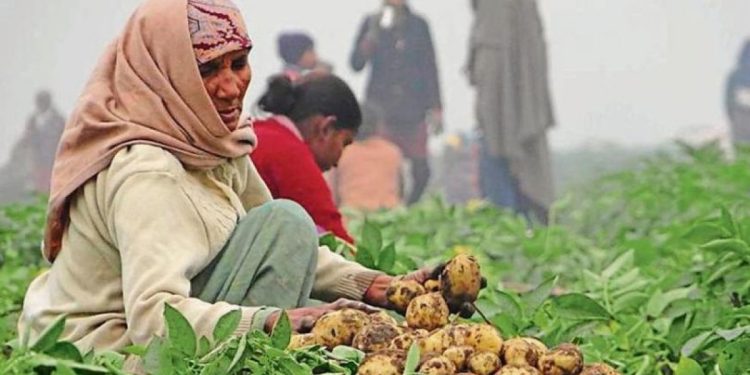#ApicalRootedCutting #PotatoSeedProduction #IndianAgriculture #SelfReliance #SmallholderFarmers #SustainableFarming
Discover how the implementation of Apical Rooted Cutting (ARC) technology is transforming the potato seed production landscape in India. This article explores the development and consequences of ARC, which has empowered Indian smallholders to become self-reliant in potato seeds. With ARC already introduced in seven potato-growing states and three more states in the pipeline for implementation, this innovative technique is revolutionizing the agricultural sector.
Apical Rooted Cutting (ARC) has emerged as a game-changer in potato seed production, enabling Indian smallholders to overcome challenges and achieve self-reliance in seed availability. The International Potato Center (CIP) and the Indian Council of Agricultural Research (ICAR), in collaboration with the Ministry of Agriculture & Farmers Welfare, Government of India, have spearheaded the introduction of ARC across various states.
The ARC technique involves the propagation of potato plants through the use of apical cuttings taken from healthy mother plants. These cuttings are carefully selected to ensure the presence of apical meristem, which possesses the highest potential for growth and development. By using ARC, farmers can produce disease-free, genetically uniform, and high-quality potato seedlings, leading to improved crop yields.
The implementation of ARC has gained significant traction, with seven potato-growing states already adopting the technique. These states include Odisha, Haryana, Meghalaya, Tripura, and Karnataka. The successful integration of ARC in these regions has resulted in increased productivity, enhanced seed quality, and reduced dependency on external seed sources.
The introduction of ARC in Indian potato farming holds several key consequences for smallholders and the agricultural sector as a whole. Firstly, ARC empowers farmers by enabling them to produce their own high-quality potato seeds, eliminating the need to rely on external suppliers. This self-reliance enhances farmers’ control over their agricultural practices and reduces production costs, leading to improved profitability.
Moreover, ARC facilitates the conservation and preservation of indigenous potato varieties. Traditional potato cultivars, which possess unique genetic traits and adaptation to local conditions, can now be effectively multiplied through ARC. This preservation of diverse potato genetic resources contributes to agricultural biodiversity conservation, ensuring sustainable farming practices.
Furthermore, the widespread adoption of ARC has the potential to enhance food security and boost the overall agricultural economy. The availability of disease-free and high-yielding potato seeds contributes to increased crop production, meeting the growing demand for potatoes in domestic and international markets. This, in turn, improves farmers’ livelihoods, strengthens rural economies, and fosters sustainable agricultural development.
The implementation of Apical Rooted Cutting (ARC) technology in India has opened new avenues for smallholder farmers in the potato seed production sector. With ARC already established in seven states and further expansion planned, Indian smallholders are experiencing greater self-reliance, improved seed quality, and enhanced agricultural productivity. This revolutionary technique has the potential to transform the potato farming landscape, ensuring sustainable development and food security for the nation.







